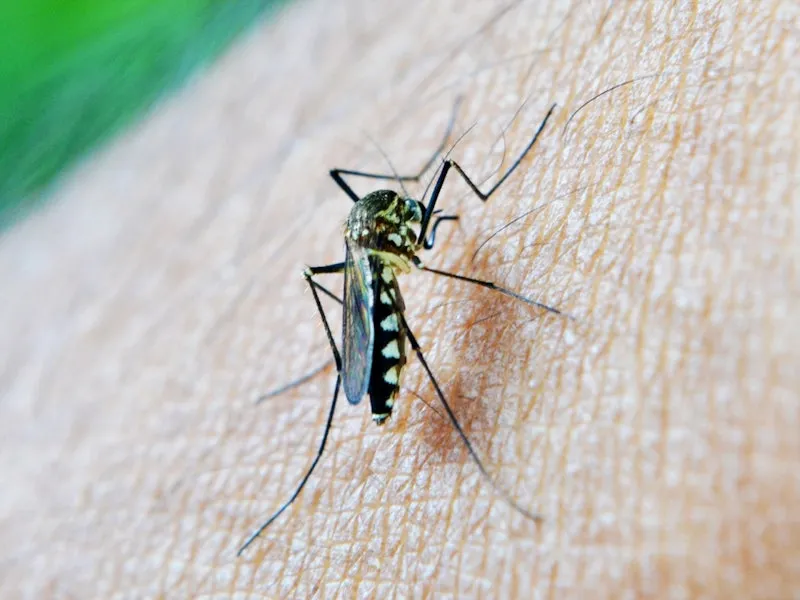I was with a high-level spiritual friend last week, and he was gladly telling me about how he has symptoms of sickness, he fails to treat the illness and after a few days, the illness disappears on its own, do not get me wrong, I believe so much in miracles, but I just had to correct him immediately, that is bad, these untreated ailments could come back to cause some severe complications to his health.

rawpixel.com
His state of mind was very shocking and I felt more pity for him than anger because from what he described, he was having symptoms of malaria and malaria is a representation of a medical emergency, as it may progress rapidly and cause severe complications which could even result to death if not treated appropriately. Cases of severe malaria are almost caused exclusively by plasmodium falciparum. There is a worldwide estimate of around 300-500 million people contracting malaria every year, which makes it a devastating global health problem.
Usually, there are countries where malaria is not an issue but with the increase in global travel and the immigration of people from regions that are endemic to malaria, there has been an increase in the incidence of malaria even in some developed countries. Malaria is a disease caused by a parasite, the parasite gets spread to humans through the bite of infected mosquitoes, and those with malaria often feel sick with chills and high fever. Protective clothing, insecticides, and bed nets are instruments to protect you while traveling, preventive medications could also be taken before, during, and after taking trips to high-risk regions.

rawpixel.com
The symptoms and signs of malaria include; Headache, abdominal pain, fatigue, cough, chills, diarrhea, muscle or joint pain, and rapid breathing. Some people often experience malaria attacks having symptoms of chills and shivers followed by high fever, then accompanied by sweating and eventually getting back to high temperature. Malaria is a serious illness that can turn out dangerous if not diagnosed and treated quickly, pregnant women, young children, older people, and babies are at a higher risk.
Malaria is caused by a single-celled parasite of genus plasmodium, the parasite gets transmitted to humans through mosquito bites. An uninfected mosquito gets infected by feeding on a person who has malaria, if the mosquito bites a person who doesn't have the parasite, then the individual will also get infected.
When the parasite gets into the body, they travel to your liver where they could remain dormant for as long as a year, when the parasites get matured, they leave the liver and infect the red blood cells, it is at this point that people develop malaria symptoms.
Other transmission modes of malaria are; from mother to unborn children, through blood transfusions, and through the sharing of needles used for the injection of drugs.
So, for my friend who has seen it as a spiritual thing not to take care of the malaria symptoms he feels, here are some of the complications he is toiling with;
Anaemia: This is when the red blood cell gets destroyed by the malaria parasite that can cause serious anemia. Anemia is when the red blood cells are unable to carry sufficient oxygen to the body's muscles and organs, making the person feel faint, weak, and drowsy.
Cerebral Malaria: Although happens very rarely, malaria could affect the brain in what is called cerebral malaria, causing the brain to swell. This could sometimes result in permanent brain damage, resulting in seizures or coma.
Hypoglycemia: People with malaria may dangerously develop low blood sugar, especially in children and pregnant women. This complication could be caused by interference with the role of the liver in glucose storage.
**Abnormalities in Blood Coagulation and Blood Pressure: The complications here may not be visible, but could result in severe tissue damage all through the body.
Metabolic Acidosis: Complications involving excessive acid in the blood and tissue fluids, often seen alongside hypoglycemia.
**Acute Respiratory Distress Syndrome (ARDS): Lung inflammation can lead to severe breathing difficulty, this inflammation can start after the parasite count has gone down in response to treatment.
Hyperparasitemia: This situation is when more than 5% of the red blood cell in the body becomes infected with malaria parasites.
Pulmonary Edema: This complication would result in an accumulation of the lung and can make it difficult to breathe.
Organ Dysfunction: This is the point where the liver or kidney fails, even the spleen may rupture creating a life-threatening situation and sudden death.
Kidney Involvement: With parasites inside the red blood cells, it would lead to blockage of tiny vessels in the kidney, or red blood cells may clump as a result of toxins, this would interfere with normal kidney function and could cause pain.
Recurring Infections: People with a healthy immune system grow partial immunity to malaria, but there is a possibility of recurrent infections becoming severe and producing complications.
Death: With widespread complications, malaria could lead to death, prompt attention whenever symptoms arise is crucial to prevent complications and mortality.
Although malaria can affect anyone, there are people who stand a higher chance of being infected with severe malaria infections, they include; young children, infants, pregnant women, and those with a weak immune system.
In a case where you are traveling to regions with common malaria, you need to take preventive measures to protect yourself from mosquito bites, you should;
- Properly cover your skin.
- Apply insect repellent to your skin.
- Apply repellent to your clothing.
- Sleep underneath a mosquito net.
- Children who live in areas where mosquitoes are abundant could also take vaccines for use.
You should immediately see a healthcare provider when you begin to feel fatigued, fevers, and headaches are common signs of most cases of infections. Cyclical fevers, sweats, and chills are strong possibilities of malaria infections and you should see a doctor as soon as possible to get diagnosed and treated.
Conclusion.
Do not be like my over-spiritual friend, please seek treatment whenever necessary, a lot of people in my country also see malaria as a normal thing but that is not right at all, symptoms of malaria should never be taken for granted, get treated as soon as you can.
